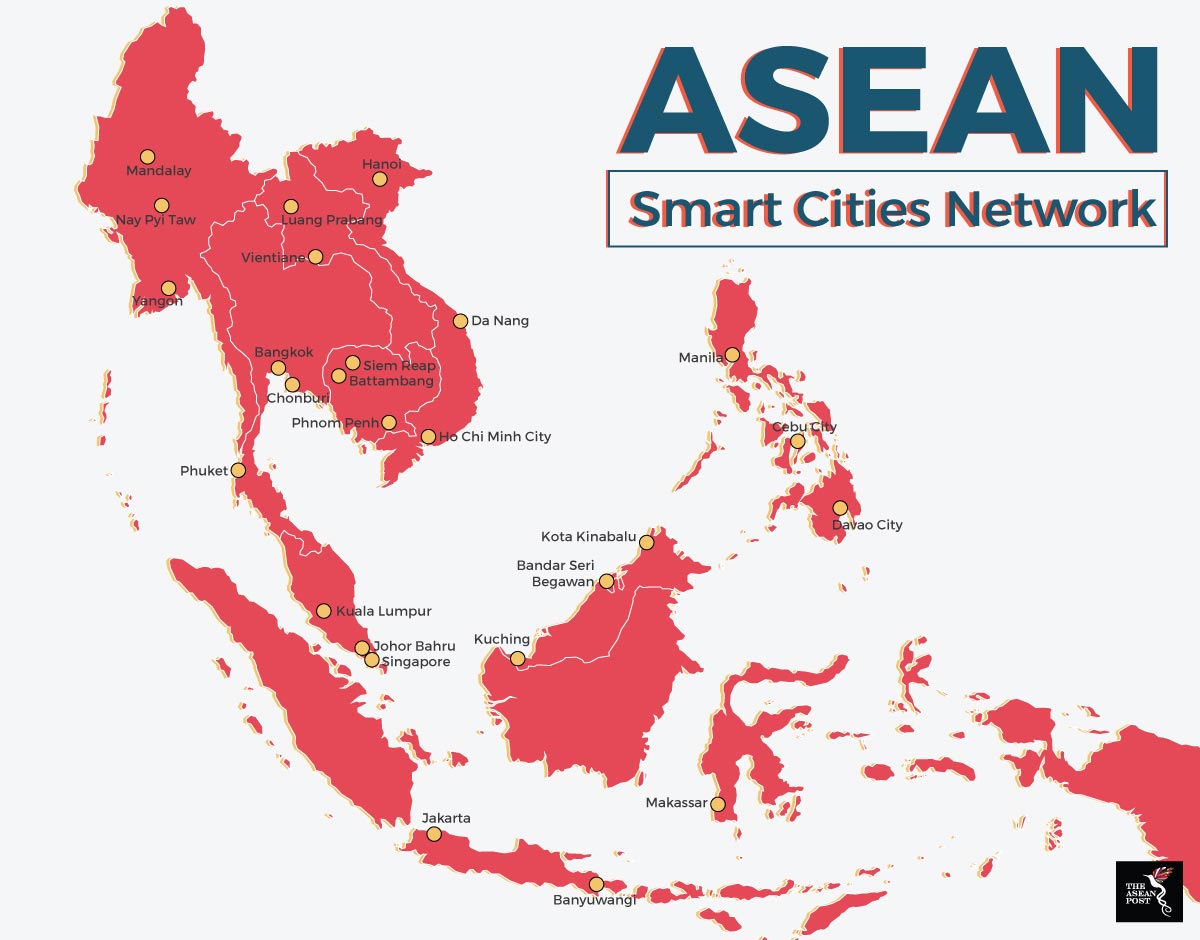Smart cities represent the future of urbanisation for the human race.
With the advent of big data analytics and increasingly faster processing speeds of computers, urban life in the 21st century would be far more efficient and integrated. It’s a vision for the future that requires a fair degree of political will as much as technological knowhow to achieve.
Within Southeast Asia, no other nation but Singapore possesses that will to drive such a vision. However, the tiny island republic is looking regional and as this year’s chairman of the Association of Southeast Asian Nations (ASEAN) it has proposed a grand scheme – a network of ASEAN Smart Cities sprawling the region.
Speaking to the press after opening the 32nd ASEAN Summit last Saturday, Singaporean Prime Minister and ASEAN chairman Lee Hsien Loong alluded to the veritableness of that ambition.
“Certainly, the Smart Cities network, we hope it will be done, will have progress and will have some tangible results this year,” he said in response to a question directed to him on ASEAN’s agenda for the next summit.
Today, more than half of the ASEAN population resides in urban areas. By 2030, urban centres in the ASEAN region is expected to be home to 90 million more people than it is today. Middleweight cities of between 200,000 and 2 million residents are slated to drive 40 percent of the region’s growth.
However, with this immense potential, comes prevailing issues such as congestion, reduced air and water quality, rising inequality and increased urban-rural divide – just to name a few. Here, smart cities can help utilise technology and digital solutions to resolve such problems and create new opportunities which would help improve the lives of citizens.
Smart city development is not something alien to this region. Although Singapore leads the charge, other countries like Malaysia, Vietnam, Thailand and Indonesia have had similar ambitions for cities in their respective countries. The ASEAN Smart Cities Network or ASCN is an effort that works to complement the individual developments of these smart city projects and harmonise such efforts at a regional level.
At this edition of the summit, ASEAN leaders released a concept note outlining the scope, core elements, timeline till launch, reporting and delivery mechanisms for the initiative. Thus far, 26 pilot cities throughout the ASEAN region have been identified and these aren’t limited to the capital cities of respective ASEAN members. The inclusion of non-capital cities signals a forward-thinking approach towards urban development as these cities would be able to benefit from more advanced capital cities within the network.

Turning the ASCN into reality
Singapore’s leadership in the ASCN is evident in the methodological approach towards realising this initiative. The ASCN will contain four core elements which would be governed by representatives from every ASEAN member state and adhere to a reporting mechanism which ultimately reports to the ASEAN Summit.
One core element is the City-specific Action Plans for Smart City Development (2018 – 2025) which would contain specific projects and actions that member cities will undertake for the duration of the seven years. Another, is the ASEAN Smart Cities Framework which essentially serves as a normative document which would guide the smart city development whilst being sensitive to local demands and cultures. The third element is the Annual Meeting of the ASCN which would be a discussion platform for key stakeholders which would be chaired and hosted by the ASEAN chair for the year. Finally, the fourth element is a twinning program which would partner ASCN member cities with one of ASEAN’s external partners – the finalised pairing listing would be announced in August this year.
The primary reporting mechanism for the ASCN is the Joint Consultative Meeting (JCM) – initially set up in 1987 comprising of the ASEAN Secretary-General, Senior Officials Meeting (SOM), Senior Economic Officials Meeting (SEOM) and the National ASEAN Directors-General. A progress report would be submitted by the ASCN Chair annually which tracks the progress and key achievements of the initiative. The Integration Monitoring Directorate (IMD) within the ASEAN Secretariat will also assist in monitoring progress and helping draft the report.
The JCM then reports to the ASEAN Coordinating Council (ACC) and the ASEAN Summit. However, this reporting mechanism is not set in stone. As the process matures, the ASCN can review the mechanisms in place and make necessary changes which would best support the sustained development of smart cities in the region.
The ASCN is set to be officially launched in November 2018 during the 33rd ASEAN Summit in Singapore. The announcement of the initiative stands as a grand curtain raiser to this ambitious idea. All that’s left is to roll up one’s sleeves and get to work turning this dream into a reality.
